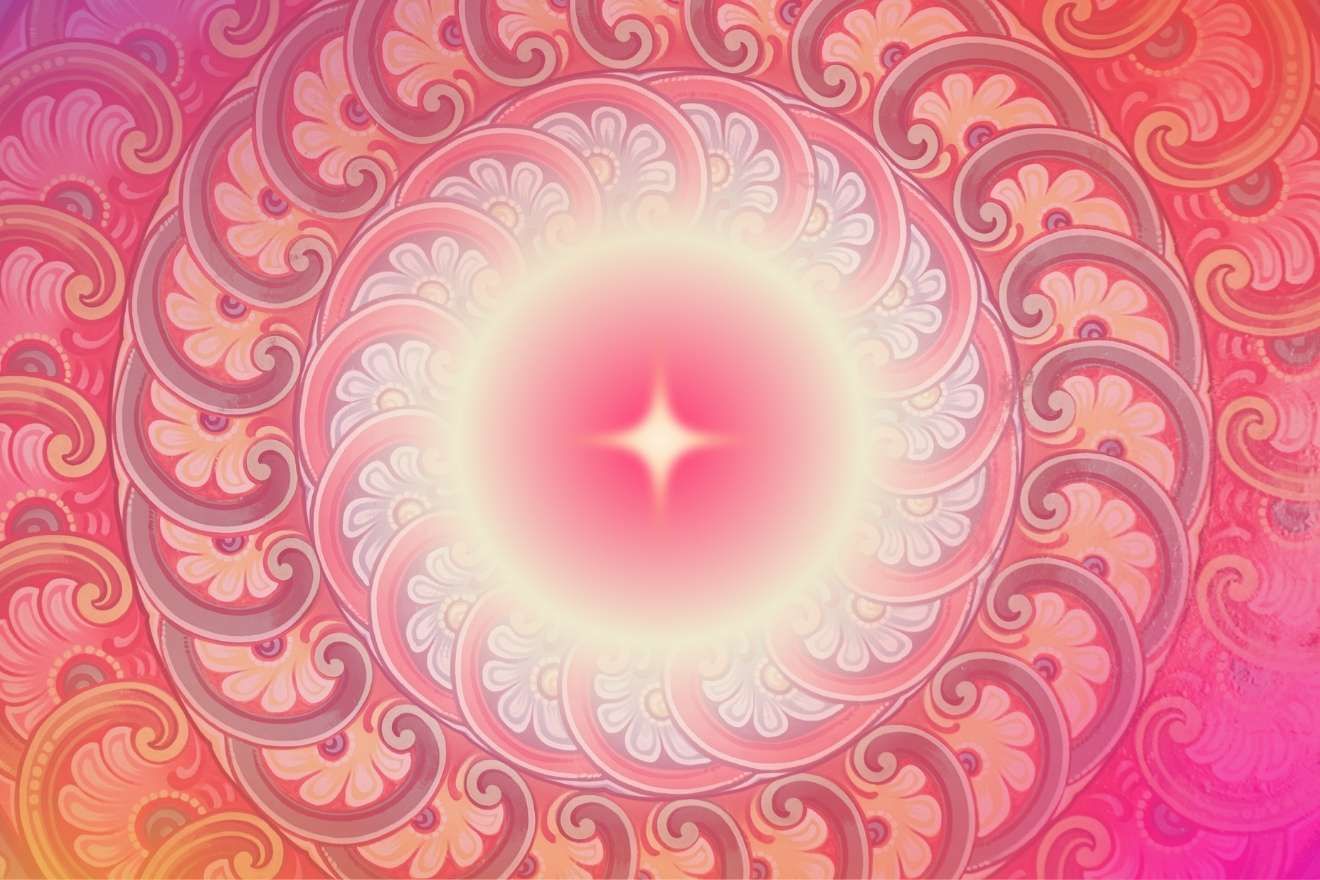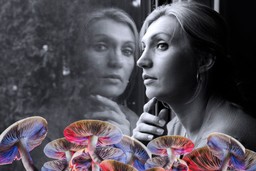A Conversation With My Maternal Grandparents: April 29th, 2023
I was sitting at the wooden table in my dining room, and the oak trees outside of my window smiled. I was at the end of an hour-long conversation on Zoom with my maternal Grandparents. They were in Saginaw Michigan, myself in Cheyenne Canyon, Colorado Springs, Colorado.
I longingly said, “Do you ever feel sad, or a sense of loss that you do not know German or Polish at all?”
“Do you mean the language?” My grandfather responded with an aghast and perplexed sigh.
“Yeah, I feel sad. I wish I knew the language, the songs, the culture.” I reached out to connect to my grandmother and grandfather, hoping they would feel the ache I did. I’ve often felt like white-wash trash in an overly McDonaldized commercialized American culture. I wanted to actually scream, “Where did we come from? What are the stories of old? When did our people stop worshiping our animate earth? When did we forget to love all of Gaia and all creatures? What does it mean to be Bavarian and Polish? What was our relationship to those lands?”
“I don’t feel sad about that. What about you, Pat?” (My grandmother.) He paused too briefly for her to respond, “The Reinkes and Baders”—the lineage of my grandmother and grandfather—“They wanted to become United States citizens. My mother wanted me to have an idea of the Polish, but she made herself speak English. And she did not want us to speak Polish. You are here now, and in the United States, you speak English. That’s how it is.”
My grandma echoed my grandfather, “They were just grateful to be here.”
I tried to feel beneath the words. “I’m hearing there was pain from where they came from. They came here escaping from something and were willing to forget everything from the past to avoid that pain.”
“Yes, that’s right. They came to the land of freedom. There was no freedom from where we came from. But now, even here, we do not have freedom. Now, the government is over us here too.” My Grandfather said this in desperation—as if nowhere in the world offers the freedom our people long for.
At the end of the conversation, I closed my laptop, looked out toward the blue-curved mountains, and took a deep breath.
Searching For Home
Many of us white-bodied Americans walking the spiritual path find ourselves wrapped up in cultural appropriation.
We have lost connection with our particular ancestry. This leaves us culturally voided and empty—easy receptacles for stealing others’ cultural traditions and often unintentionally participating in cultural appropriation. For those of us who are white, we’ve forgotten that we all come from indigenous European roots at some point in our history.
Our task is to remember these roots.
I was given the opportunity to connect to my ancestors through psilocybin, but it wasn’t as simple as swallowing mushrooms. My psilocybin journeys did not heal me like most of the psychedelic marketing preaches. Instead, through taking the medicine, I became intensely aware of how disconnected and fragmented I was. It was excruciating fear and disorienting psychedelic experiences that evoked a curiosity in me. I wanted to uncover why I was suffering so immensely.
I was part of the School of Consciousness Medicine for eight months in 2020. At this time, Franciose Bourzat (who was mentored by the famous Maria Sabina) claimed to initiate me into the Mazatec tradition. At first, I went along with this. I had never experienced psilocybin mushrooms until my connection to this collective of people. The worship of experience so prevalent in psychedelic circles swept me away. I left all my personal intuitions, historical biography, and spiritual wisdom behind. Leaving my Christian roots behind, I moved toward being in service to the worship of entheogens and empathogens.
I learned how the Mazatecs opened their medicine ceremonies; I sang to the seven directions, and even said Aho, at the end of each prayer. About halfway into my time there, I began to have feelings that my peers and I were fake neo-shamans. It was disturbing. Who were we to suddenly claim a tradition entirely Other to our blood, ancestors, community, or historical biographies? I raised this issue on one of our Zoom calls. The answers I received glossed over the real ethical issue I raised: “Trust the medicine, that’s what’s most important.”
A strange hubris had overtaken us.
Now, I see that my underlying unconscious hunger to connect to my personal lineage, the earth, tradition, and mysticism was ravenous. So ravenous that I settled for anything that had even a glimmer of my Indo-European roots. However, this came with the high cost of appropriating a tradition that was not mine to claim. From my perspective, this is why so many white Americans grasp at Native American wisdom. Why they venture to Peru or Costa Rica to learn from the Shopibo tribes. Why they become so-called shamans within these traditions after only a couple of years of study.
Because many of us come from families who have intentionally forgotten our roots, we search anywhere for some recollection of home. A place connected to non-human beings, a culture not obsessed with scientific materialism, away from the misuse of capitalism and consistent exploitation of humans and non-human creatures. These places remind us of something we used to have. And yet, if we do not look at our collective history, we will likely engage in cultural appropriation and exploit and ruin these places, too.
Diving Deep, Becoming Human
Thankfully, I left the school and faced how I was appropriating Mazatec traditions—something I had no right to do. I felt like a fake neo-shaman, and I followed these gut feelings of disgust. This led me to sign up for a course with the Animus Valley Institute. For three years, I dived deep into soul-infused artistry with Animus and Gaia.
The deeper I went into connecting to Gaia herself, the more my Polish, English, and Bavarian ancestors spoke to me. They spoke through what is called cerebellum consciousness, the primal back brain—our feminine consciousness. I then began to speak to my ancestors directly. I received their wisdom and ways through dreams, synchronistic books from friends, prayer, and research.
Throughout this process, I became more human.
Our Future: Supported By Our Past
We cannot become more human by escaping our reality. When we dissociate from our roots, we actively acquiesce to a dominant culture. One that harms, exploits, and wreaks havoc on ecosystems and each other. Running away to another culture—their wisdom and traditions robbed by cultural appropriation—will not mend our broken, battered, and deeply pained country.
To be silent about what is here now, who we have been, why we fled our European or other countries, how we dissociate from place and land—this perpetuates violence.
If anything, our task is to honor, respect, and protect living indigenous cultures, their lands, and their medicines. Not only from ourselves—but from our ingrained habits of cultural appropriation and destroying ecosystems that turn everything into something to sell.
As white-bodied people, we are being offered the opportunity to reclaim both our ancestry and souls—particularly in this time. We are all so much more than Americans. We all have deep roots and hold oceans of wisdom.
Our ancestors stand behind us. Many of them—especially our healthy, whole ones—have many gifts, medicines, wisdom, and love to share.







